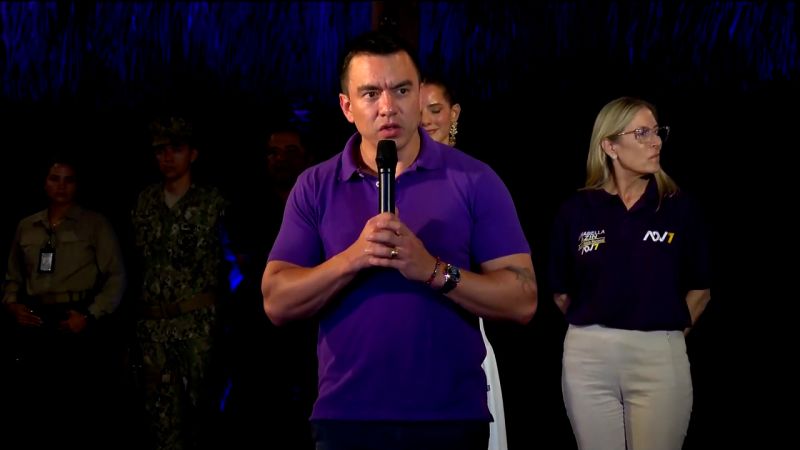Allegheny County officials and public health leaders celebrated the opening of a new public health laboratory in Marshall Township Monday. The 40,000 square-foot facility is designed to scale up the county’s laboratory testing capacity and better position Western Pennsylvania to manage public health threats. “This lab will support our work in tracking foodborne illnesses, investigating environmental exposures, monitoring chronic and infectious diseases, and preparing for emergencies,” said Dr.
Iulia Vann, director of the county’s department of health, at a press conference. “It is not just built for today; it is built to meet the challenges of tomorrow.” But the future of the investment stands on unstable ground, as the Trump administration seeks to claw back $20 million promised to the Allegheny County Health Department.

And most of that money is earmarked to finish outfitting the lab with state-of-the-art technology and equipment. President Trump’s Health and Human Services Secretary Robert F. Kennedy Jr.
announced plans last month to pull back $11.4 billion in COVID-19-related funds from state and local health departments. In response, a coalition of states , including Pennsylvania, sued the administration and a federal judge announced last week she would temporarily block the cuts.
Allegheny County Executive Sara Innamorato said she’s closely watching the chaotic back-and-forth over the Trump administration’s attempt to freeze billions of federal funding across the board. “Having the rug ripped out from under us is very destabilizing,” she told WESA. “This money was promised to us.
” Innamorato said that she’s “grateful” for the court’s actions, which allow the county to move forward with the expectation that it will receive the funds. “We made plans on how we can invest the money for long-term economic and public health benefits,” she said. Other Pennsylvania health departments would face similar funding shortfalls should the federal cuts come to pass.
According to Democratic Gov. Josh Shapiro, Pennsylvania is expecting more than half a billion dollars in public health grants. “These dollars have been committed to us for critical priorities like mitigating [bird flu] and measles, providing long-term care for older adults, and ensuring access to immunizations for children,” Shapiro wrote on X.
“As a result of taking the [Trump] administration to court, these dollars will now start flowing again.” Still, some health departments are already taking drastic measures to balance their budgets. WHYY reported Monday that the Philadelphia Department of Public Health has laid off roughly 100 workers amid the loss of at least $30 million in federal grants.
When asked about whether Allegheny County is considering similar measures, Innamorato acknowledged that the health department relies on federal grants for some positions, but that it was “too soon to say” whether those positions could be eliminated without continued federal support. “We are looking at how we can keep the vital employees here regardless of where their funding comes from,” she said. “But at some point, we have to keep our promise to the public and balance our budget.
” The county’s new laboratory was first envisioned five years ago amid the turmoil of the COVID-19 pandemic, as local health departments scrambled to expand testing capacity. COVID-19 tests were being done in closets, as the county’s cramped Lawrenceville lab space afforded no extra room. “There was not a square foot in the current lab space that was able to be used,” said Kim Joyce, chief operating officer of the Allegheny Health Department.
“At that point, we knew that we wanted to do better for the community.” Now Pennsylvania’s Secretary of Health, Dr. Debra Bogen was the head of Allegheny County’s Health Department at the time.
She described the new lab as a “symbol of progress, preparedness and innovation.” “With expanded capacity for testing and rapid disease response, this facility will play a critical role in identifying outbreaks, tracking emerging health threats, and ensuring that timely, data-driven decisions are made to protect the residents,” Bogen said. “The ability to conduct more tests with greater speed and accuracy enables us to respond to public health concerns faster than ever before.
” The building previously housed operations for Kadmon Corporation, a biopharmaceutical company that develops treatments for immune and fibrotic diseases. Allegheny County’s public health lab is one of just three in Pennsylvania; the others are in Harrisburg and Philadelphia. Bogen said expanding testing capacity in Western Pennsylvania will benefit the entire state.
Construction of the new $35 million lab was a key county project funded by the Biden-era American Rescue Plan Act, which allocated $350 billion in funding to state and local governments to support pandemic recovery . Allegheny County received nearly $381 million in rescue funds from the federal government. County officials noted that the lab will also serve communities across the region by working with health care providers in Beaver, Butler, Armstrong, Washington, Westmoreland and Fayette counties.
“The objective was to be an asset for the region,” said Joyce. “This is why we chose a space that is so far out of the county so that we’re bordering our neighborhood counties as well as all of the major arteries in the county to get to the highways.” The laboratory sits just off I-79 in Warrendale, Pa.
in the Northeast section of Allegheny County. Eightfold testing increase The sleek facility was designed to make Allegheny County less reliant on shipping off tests to Philadelphia, Harrisburg and even Florida and Texas by expanding in-house capacity. The county’s previous lab could run 50,000 samples per year, but the new facility will increase performance to more than 400,000 tests per year.
“This is a game-changer for public health,” Vann said. “With expanded testing capabilities, we can identify health threats faster, reduce barriers for health care providers and ensure that our region is prepared for whatever challenges come next.” Part of that expansion comes from automating testing that is currently done by hand, according to Colin Stuart, a lead scientist at the health department.
Among the equipment being installed at the lab is a Liaison XL, a fully automated chemiluminescence analyzer capable of processing around 180 tests per hour. “The automation really cuts down on the physical workload,” Stuart said. Immediately, the county will begin testing for herpes simplex virus and Mpox, which previously had to be shipped to Harrisburg or Philadelphia, the health department said.
New equipment will also enable the county to test microbes that can cause serious or potentially lethal disease through inhalation such as tuberculosis and anthrax. The lab opening also creates four new positions in the health department for lab technicians and a specimen-receiving supervisor. Once filled, those employees will work alongside the 28 others transitioning to the new facility.
The health department will next begin transporting equipment and testing into the new lab by transporting instruments in phases to prevent a disruption in service. Vann expects to have fully transitioned the lab from its Lawrenceville location to the new Warrendale facility by the end of June..
Politics

Allegheny County’s new public health lab faces federal funding uncertainty

The Allegheny County Health Department was joined by state and local officials Monday to mark the opening of a new public health lab. But federal funds to outfit the lab with new equipment are under question.















